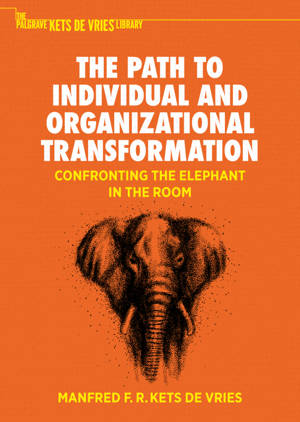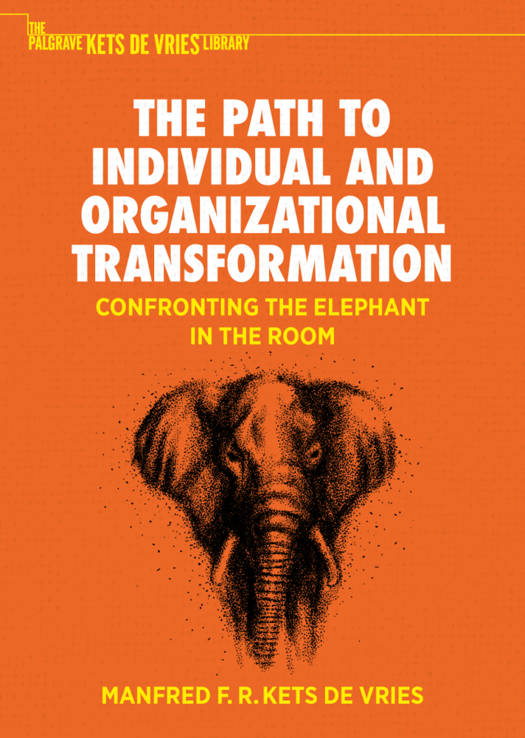
- Afhalen na 1 uur in een winkel met voorraad
- Gratis thuislevering in België vanaf € 30
- Ruim aanbod met 7 miljoen producten
- Afhalen na 1 uur in een winkel met voorraad
- Gratis thuislevering in België vanaf € 30
- Ruim aanbod met 7 miljoen producten
Zoeken
The Path to Individual and Organizational Transformation
Confronting the Elephant in the Room
Manfred F R Kets de Vries
€ 29,95
+ 59 punten
Omschrijving
Change can be hard, and for many people, unlearning habitual patterns is an uphill challenge. It can be painful, but not as painful as remaining stuck. With an estimated 70% of change initiatives failing, Manfred Kets de Vries, a world renowed Professor of Leadership Development, offers a more positive outlook. Infused with his trademark inimitable style of analysis, he demonstrates how change methodologies can be applied in a highly effective way. At the heart of effective organizations lies human action--what we do, how we do it, and why we do it. As leaders, consultants and executive coaches we need to pay close attention to the individual and group dynamics of the organizations that we work with. By looking more deeply into the world of work with the aim of untangling and explaining what lies below the surface, this book helps you see through the darkness that may lead us astray, yet this kind of "night vision"--efforts to turn the irrational into the rational--requires in-depth observation. To find out what is really happening demands a more clinical orientation. To be successful, Kets de Vries argues, leaders need to recognize the importance of what have been referred to as "soft skills", essentially using emotional intelligence to their advantage. Contrary to their name, these abilities are often the "hardest" skills to learn. Adopting a clinical approach to leadership, this book helps you to understand more about the dynamics of organizational life, leading to greater self-awareness, self-knowledge, and the ability to become a more effective change agent. By becoming aware not only of our conscious thoughts, but also of our unconscious prejudices, biases and habits it's possible to understand more why so many well-laid plans and strategies derail or, conversely, why otherwise effective leaders sometimes act in unexpected ways.
Specificaties
Betrokkenen
- Auteur(s):
- Uitgeverij:
Inhoud
- Aantal bladzijden:
- 282
- Taal:
- Engels
- Reeks:
Eigenschappen
- Productcode (EAN):
- 9783031883293
- Verschijningsdatum:
- 1/07/2025
- Uitvoering:
- Hardcover
- Formaat:
- Genaaid
- Afmetingen:
- 155 mm x 235 mm

Alleen bij Standaard Boekhandel
+ 59 punten op je klantenkaart van Standaard Boekhandel
Beoordelingen
We publiceren alleen reviews die voldoen aan de voorwaarden voor reviews. Bekijk onze voorwaarden voor reviews.











